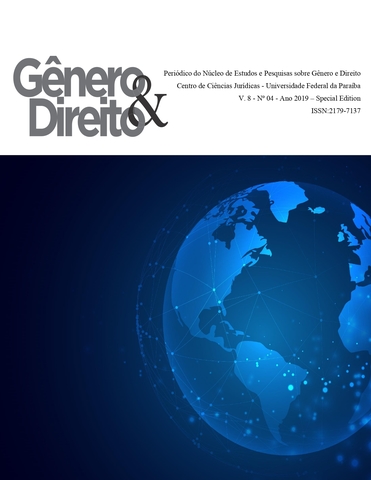BACIS THEORETICAL CHARACTERISTICS OF INTERNAL CONTROL
DOI:
https://doi.org/10.22478/ufpb.2179-7137.2019v8n4.48370Palavras-chave:
internal control system, components of the internal control system, evolution of internal control, delineation of powers within the internal control systemResumo
The question of the existence of an effective internal control system is now of particular relevance. The current stage of the economic entities operation in the Russian Federation is a stage of changing the external and internal environment of management, characterized by a high level of uncertainty and instability, which consists in toughening of competitive relations. Domestic organizations have to operate in the conditions of rapid change and development of technologies, a tough competitive environment, growing business diversification, and inconsistency of domestic legislation. One of the main factors for creating the competitiveness of organizations is effective management, based on quality, reliable and complete information about the managed facility. The paper reveals key questions about the internal control of commercial organizations in the non-financial sector. The main interpretations of the term "internal control" and components of the internal control system are considered, the stages of internal control formation are outlined, the place of internal control in a corporate governance system is substantiated, and official powers in the internal control system are identified. Also, the authors present the main documents which should be noted when studying the issue of internal control. The main methods used in this work are the information systematization, processing and generalization.Downloads
Referências
Federal Law on Accounting dated 06. 12. 2011 No. 402 - FZ (as amended on December 28, 2013), Article 19.
Federal Rule (Standard) of Auditing Activities (FR (S) AA) No. 8, paragraphs 41-42.
Document No. PZ-11/2013, the letter of the Ministry of Finance of the Russian Federation dated 25. 12. 2013 No. 07-04-15 / 57289, item 3.
International Standard on Auditing (ISA) 315 "Identification and assessment of risks of material misstatement by examining the organization and its environment", item 4.
A document issued by the Committee of Sponsoring Organizations of the Tradway Commission (Eng. COSO).
Hassan A.M. Effects of internal control system of the organizational performance. Journal of Business Management / Vol.2, Issue 9, Sept 2016, p. 153-167.
Hightower, Rose. Internal Controls Policies and Procedures.Hightower, Rose John Wiley & Sons, Incorporated 2008, p. 39-40.
Leitch, Matthew. Intelligent Internal Control and Risk Management: Designing High – Performance Risk Control Systems. Leitch, Matthew/Taylor and Francis, 2008, p.15-16.
Sanusu F, Bashir M. The effectiveness of internal control system and financial accountability. International Journal of Research in Business Management / Vol.3, Issue 8, Aug 2015, p.1-6.
The Institute of Internal Auditors site. URL: https://www. iia-ru. ru/.
Naumova N.A., Kharisova F.I. Effective internal audit service organisation in health clinics. Mediterranean Journal of Social Sciences/ Vol.5, Issue 24, 2014, p.170-175

